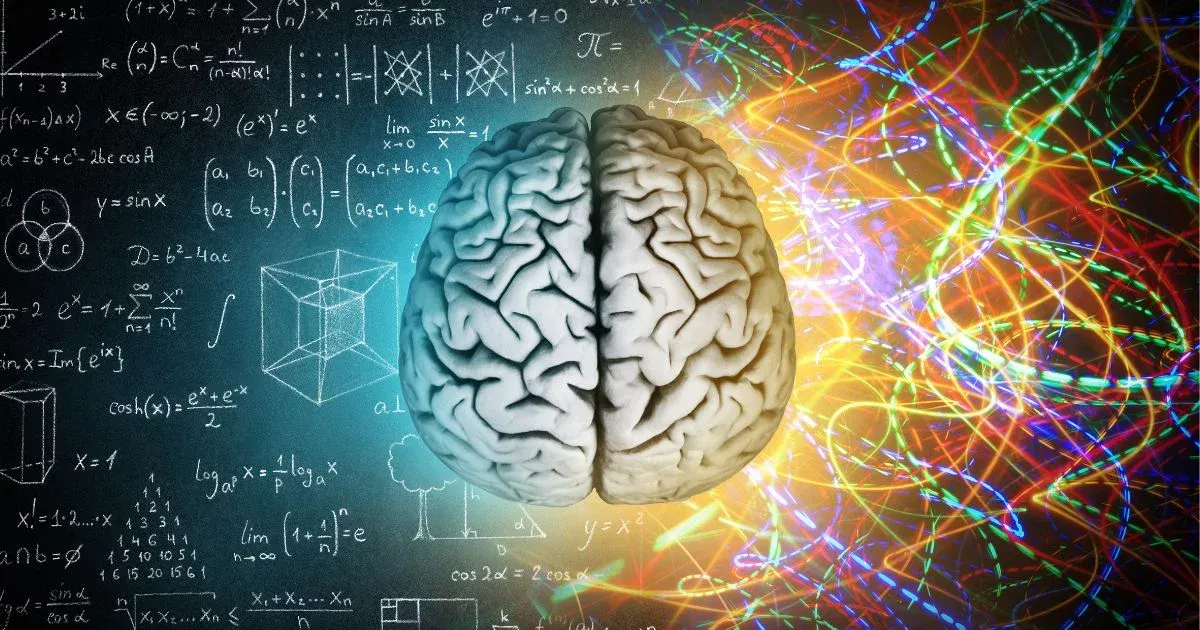Important Points.
1 - Assessing the impact of aging on the body and mind is increasingly being done using measures of brain age.
2 - Recent studies have demonstrated that significant health consequences can be predicted by criteria other than just chronological age.
3 - Taking advantage of easy mental exercises will help you maintain the youngest possible brain age.
Have you ever pondered the potential "age" of your brain? It's likely no secret that the brain appears to be losing neurons at an astonishing rate, particularly as one ages. It makes sense that you would want to hang onto what you have for as long as you can. Pic@ Getty Images.
Perhaps you play daily word and visual puzzles, hoping that these can keep your brain’s agility, based on your conviction in the “use it or lose it” adage. You may like to read how to open spiritual third eye here.
For a considerable time, aging researchers have been dissatisfied with the notion of chronological age and have been looking for alternatives that could offer a more accurate measure of an individual's functioning. You have firsthand knowledge from your own experiences with 76-year-olds whose mental dexterity and judgment considerably exceed those of their younger counterparts.
In terms of yourself, wouldn't it be good to have a reliable estimate that would give you a sense of both how you're doing right now and possibly how you might develop in the future?
The Emerging Field of Brain Age Assessment.
With a plethora of brain imaging methods at their disposal, neuroscientists are starting to gather data that may eventually lead to a precise measurement of brain age.
Unfortunately, access to these measurements is not expected to become widely available very soon from the perspective of the average person. To get a readout of how your brain is working, you can't simply place your smart watch on your head like you can on your wrist. This does not, however, imply that you must completely abandon this notion.
In a recent comprehensive follow-up to the extensive Midlife in the United States (MIDUS) study, conducted in 2023 by Fengqing Zhang and his team at Drexel University, 863 individuals out of the original 4,085 participants were re-enlisted for a "refresher" investigation.
This new phase specifically emphasized biological assessments, including cardiovascular, obesity, and bone measurements. Additionally, 138 participants underwent brain-based testing, involving structural MRI scans.
Researchers "train" computers in a "machine-learning regression model" to take raw scores from thousands of individuals and use them to predict chronological age. This is the fundamental reasoning behind how researchers determine brain age. If your brain age is lower than that of your age peers, it indicates that you are performing better on this anticipated value.
Age of the Brain and Disease Risk.
Previous research has demonstrated that a higher brain age is linked to an increased chance of developing conditions like diabetes, Alzheimer's, and stroke. Increased death rates are also associated with higher brain ages. The Zhang et al. study, on the other hand, was the first to address multimorbidity, a more practical scenario in which many chronic illnesses coexist.
Many physical systems, including asthma, cardiovascular disease, obesity, cancer, and HIV/AIDS, as well as psychological problems, including depression, anxiety disorder, alcoholism, and drug abuse, were among the chronic ailments found in MIDUS.
A person needed to have at least two of the 13 chronic illnesses used in the study in order to be classified as multimorbid. Ten percent of the study group had mental health multimorbidity and forty-three percent had physical disease multimorbidity. You may like to read how to improve your memory and concentration here.
The results demonstrated that, as expected, a higher biological age was linked to a higher risk of having two or more chronic illnesses. Greater multimorbidity in mental health was predicted by a higher brain age + biological age, and in men, a higher brain age was also linked to greater multimorbidity in physical health. Thus, brain aging can have a significant impact on day-to-day functioning.
A significant proportion of those 65 to 70 years old had brain scans identical to those of adults 40 years and younger, highlighting the significance of brain age as opposed to chronological age. It's obvious that some of the sample's elder members were taking good care of their brains.
Recognizing Your Personal Cognitive Age.
There are still helpful insights from this study that you may put to use right now, in the meantime, until a wristwatch that can detect the age of your brain is created.
Education was found to have a protective effect on brain age, indicating that a higher level of education may provide an advantage over time in the brain. But you don't need to attend college to take advantage of this perk.
Studies on the relationship between psychology and aging have shown that even basic cognitive training, such sharpening your reasoning abilities, can have long-term advantages that make it easier for you to organize your daily schedule (Rebok et al., 2023). Your brain can continue to age if you continue to solve puzzles every day.
Even better, behavioral readouts of cognitive (i.e., brain) age are being developed by psychologists. Play those puzzles, but also check out how you score against others using the statistics some of these websites offer. Observe your development and how you get better every day.
The study also disproves the fatalistic theory that says the aging process of your brain is a direct result of time's deteriorating impacts. Furthermore, it would seem that good habits for your body would also benefit your brain and, consequently, your perspective on life, given the relationship between biological age and brain age.
Conclusion.
Researchers in this quickly expanding discipline will only keep moving forward with fresh discoveries. Take action today to maintain the most youthful and active brain possible to stay ahead of the curve.
Thanks
Written By HowNHowTo.Com Team
